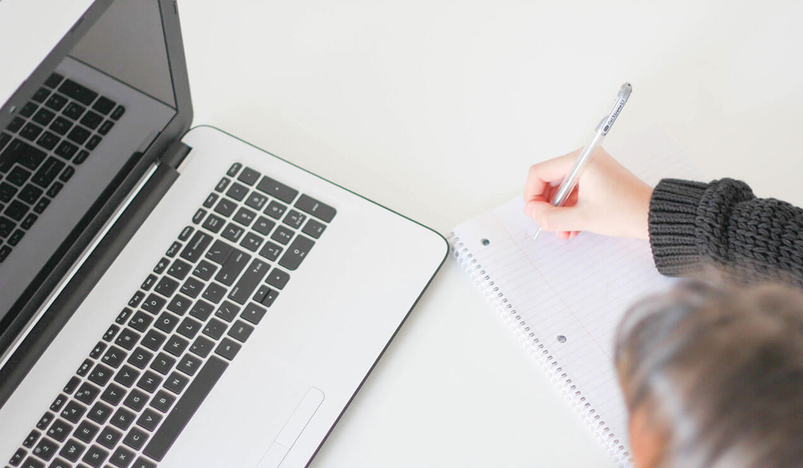
How to study effectively for Class 9 Maths
Studying math is difficult. Students need to have a proper study plan to study maths. By keeping your mindset practical even with slow learning speed but stable and consistent study, getting a high score easily. With an absolute study plan and its execution, getting full marks is also possible. In this article, students will learn how to prepare for the Class 9 Maths exam in an easy way and in less time.
NCERT textbook – This is the basic and important resource to study for the exam. CBSE Class 9 Maths Book has all the necessary chapters that will come in the exam. Questions in the exam are based on this textbook. Hence it is necessary to cover the textbook completely.
Online lectures – Online lectures are important to clear doubts. There are many videos available online. Almost every chapter of Class 9 math is explained very well on many online videos. If something is difficult to understand, then it is beneficial to learn from online lectures.
Question books – To practice and solve questions it is a must that every student has their question books or question series. Today, many platforms offer question series online. In question books, part also includes previous year questions. Solve these questions along with other question books.
Sample papers – Sample papers are practice papers that are similar to the main exam. Students should at least solve 2-3 papers before the exam to get an idea of where they stand with their preparation.
Every exam needs only three steps to get good marks, that is preparation, revision, and practice. Every student must execute these steps before the exam 1 or 2 times. Let's discuss them in detail -
1. Preparation – Preparation includes building the foundation for the concept and learning them effectively. Always start preparation with the deadline. Preparation for maths must end at a certain time so that there is enough time left for revision and practice. Preparation includes learning from teachers and then self-study. Keep in mind that there is a moderate amount of time for doing self-study. Self-studied chapters tend to not forget. Hence prioritize self-study over doing assignments and any other activities. Do not waste time on making notes. First, see any lecture online if you still have doubts about what you have learned in class. After that, start reading from the NCERT textbook and highlight the main keywords, formulas, and theory statements. Remember what the chapter covers. Then solve solved examples and exercise questions from the NCERT textbook and then questions from question books on your own. Solve every question whether it is similar to other questions or not. After that, put a checkmark on
questions that were very easy to solve, and for questions that were hard to solve, put an asterisk mark. Students must be able to solve these asterisk mark questions when they are revising. It will help in the revision process.
2. Revision – Whatever chapter learned in preparation; it is important that there is revising of that chapter once in a week or two weeks. Reading one or two chapters so that when you open a textbook some days before the exam it is not at all confusing. Revising is the advanced level of preparation. If a student is not revising then all the preparation he/ she has done is going to be useless in the exam. Hence every student must revise what they have learned in preparation.
3. Practice – It is the final step in studying for the exam and the most important one. Here students are supposed to sharpen their skills related to the subject. By the time the former two steps are done students have pretty much covered their syllabus. Practice includes solving sample papers and difficult questions marked in question books. Practice as much as you can. More practice will ease the solving process of the main exam. There are two types of practice for math subjects. One is basic level practice and the other is exam acentric practice. Basic level practice includes solving every type of question which can test your conceptual understanding, knowledge, and problem-solving ability. Exam acentric practice will include solving questions with keeping the exam as a base. In an exam, it is important to solve questions in a limited time. The CBSE exam is going to be focused on multiple-choice questions which are going to test students’ critical and analytical thinking. To be able to solve questions in a li
mited amount of time practice solving sample papers. If you cannot solve in a given time then more practice is needed.
If students have followed the above three steps sincerely then there is no need to worry about the result of the exam. With this schedule, students can easily score 100% marks in the exam.
The CBSE board exam is objective-based. Students need to focus on understanding every concept from the textbook. The class 9 exam is going to be based on the Class 10 CBSE board exam hence students must study for the Class 9 exam seriously. There is no need to prepare for 8-10 hours daily for a year but by only giving 1-2 hours daily students can easily pass the Class 9 exam with flying colors.
.jpg)
Qatar Secures Place Among the World's Top 10 Wealthiest Nations
.jpg)
Hamad International Airport Witnesses Record Increase in Passenger Traffic

Saudi Arabia: Any visa holder can now perform Umrah

What are Qatar's Labour Laws on Annual Leave?
Leave a comment